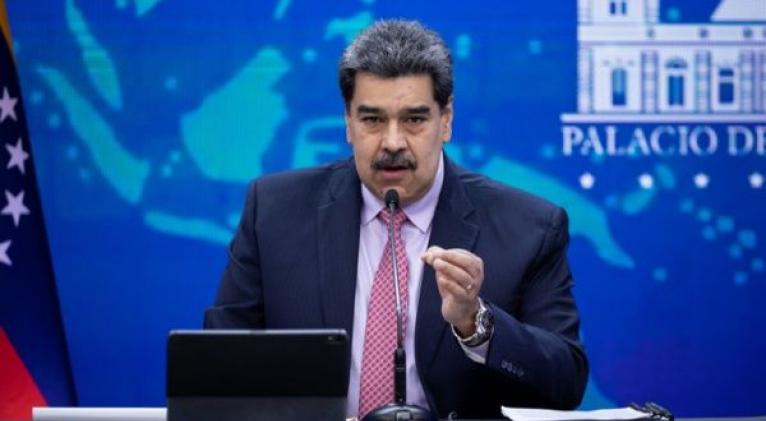Citgo Profits Must Be Returned to Venezuela, Says Maduro
especiales

Venezuelan President Nicolás Maduro said on Wednesday that the profits generated by Citgo since 2019 should be released to Venezuelan accounts as a key to advance in the dialogue with the opposition.
"One of the vital elements to continue advancing in the negotiations is that Citgo is returned to Venezuela, completely, free of dust and straw and that the dividends that Citgo has given in 2019, 2020, 2021 and 2022, be released to Venezuelan accounts for social investment, the dividends of Citgo", detailed the president in a press conference at the Miraflores Palace (Government headquarters) in Caracas.
RELATED:
Venezuela-Chevron to Sign Agreements To Promote Joint Ventures
Maduro said that the progress of the agreements with the Venezuelan opposition depends on releasing the resources that keep his nation blocked.
On November 26, Maduro's administration and a sector of the opposition signed the second partial social agreement for the protection of Venezuelan citizens in Mexico City, which is aimed at recovering Venezuelan resources abroad for the attention of public services and areas of basic need.
The document establishes the creation of a single trust fund with the support of the United Nations (UN), for which the parties identified the resources frozen in the financial system abroad that will be incorporated progressively.
In 2018, Judge Leonard Stark ruled in favor of the Canadian company Crystallex, which had sued Venezuela for revoking mining rights in Venezuelan territory.
The ruling authorized the sale of Citgo shares to pay the debt to the Canadian company.
The most critical moment came in 2019 when opposition deputy Juan Guaidó took over the management of Citgo and other assets abroad.
That same year, Maduro's government tried to regain control of the company and took the case to the Delaware Court, but U.S. justice backed Guaidó.
Citgo is currently engaged in refining, marketing and transporting petroleum-based fuels and industrial products.
The company also owns three highly complex crude oil refineries located in the U.S. in the states of Louisiana, Illinois and Texas, with a production capacity of 425,000, 167,000 and 157,000 barrels per day, respectively.














Add new comment